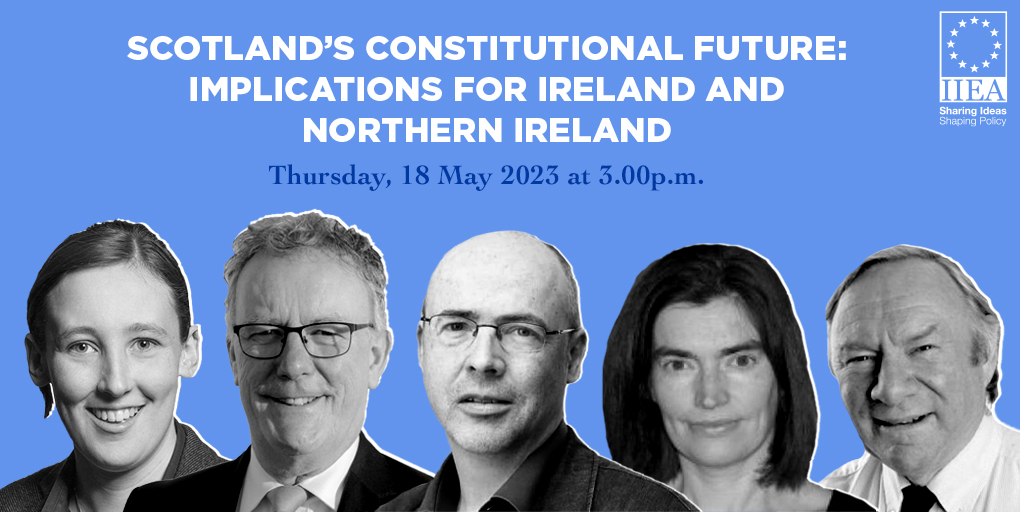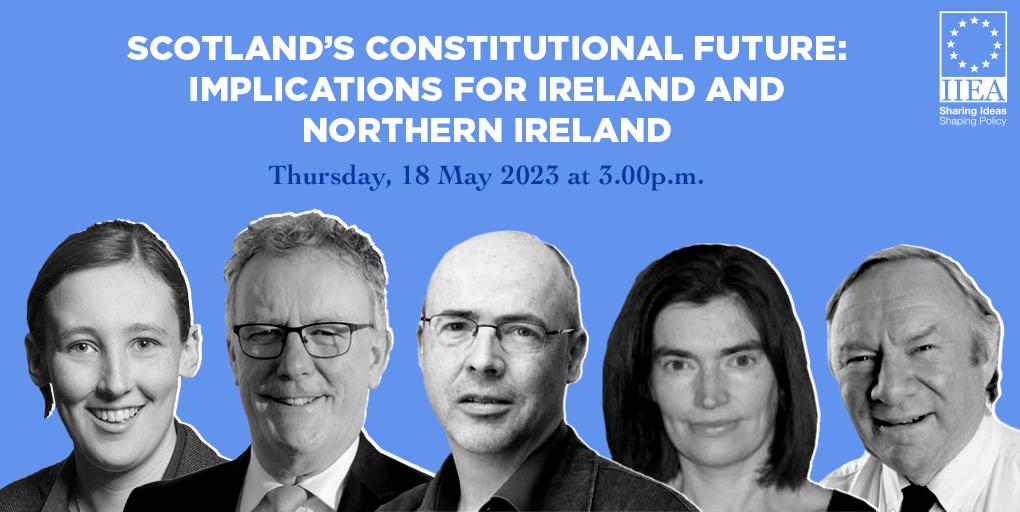Scotland’s Constitutional Future: Implications for Ireland and Northern Ireland

From a shared Celtic past, to their politically and economically developed present, there is much that links Scotland and Ireland. The cultural and historical ties between Scotland and Northern Ireland are particularly close. In the past 10 years, and recently accelerated by Brexit, discussion and debate around the UK’s constitutional future have intensified. In particular, questions arise as to the impact that Scottish constitutional change would have on its relationship with Ireland, and what the implications of any such change would be for Northern Ireland. In this panel discussion, leading politicians and academics from Scotland, Northern Ireland, and Ireland discusses the Scotland-Ireland relationship, and the likely implications of Scottish constitutional change for Northern Ireland.
About the Speakers:
Mhairi Black is the SNP Member of Parliament for Paisley and Renfrewshire South. Since December 2022 she has also been the SNP Deputy Leader in the House of Commons. Ms Black was first elected as a Member of Parliament in the 2015 General Election while she was still completing her undergraduate degree at the University of Glasgow. At 20 years old, she was the youngest MP to be elected since the 1832 Reform Act and she remained the “Baby of the House” until 2019. Ms Black was reelected as a Member of Parliament in both the 2017 and 2019 General Elections. Since being elected, Ms Black has campaigned for social justice, women’s and LGBTQ rights, and an end to austerity.
Mike Nesbitt is the UUP Member of the Legislative Assembly for Strangford. He was first elected to the Northern Ireland Assembly in 2011, following a successful career in broadcasting for the BBC and UTV. Mr Nesbitt was elected as leader of the UUP in 2012. His time as leader coincided with several significant events in Northern Irish politics, including the decision of the United Kingdom to leave the European Union, the 2016 centenaries of the Battle of the Somme and the Easter Rising, and the collapse of Stormont over the RHI scandal. Mr Nesbitt’s leadership of the UUP was notable for his engagement with political nationalism and with Irish culture and heritage in Northern Ireland.
Nicola McEwen is the Professor of Public Policy in the University of Glasgow. Between 2001 and 2022, she taught politics at the University of Edinburgh, where she became Professor of Territorial Politics in 2014. She was also a founding co-director at the Centre for Constitutional Change, a leading Centre for the study of research the United Kingdom’s changing constitutional relationships. From 2019-2022, she led a major research project at the Centre, titled “A Family of Nations? Brexit, Devolution and the Union”. Professor McEwen has published widely on territorial politics, Scottish politics, devolution, identity politics, and nationalism.
Graham Walker is an Emeritus Professor at the School of History, Anthropology, Philosophy and Politics at Queen’s University Belfast. His research interests include the political history and contemporary politics of Scotland and Northern Ireland, particularly the politics of Unionism, religious identity in Scotland and Northern Ireland, and the history and contemporary role of the Labour movement in the United Kingdom. He has published extensively on Scottish and Northern Irish politics, and most recently co-authored “Ties that Bind? Scotland, NI and the Union”, which examines the interaction and interdependence of politics in the devolved jurisdictions of Scotland and Northern Ireland.
Dr Paul Gillespie directs the “Constitutional Futures after Brexit” Project in UCD's Centre for Peace and Conflict Research (formerly the Institute for British-Irish Studies). Dr Gillespie is also a columnist, and a former foreign-policy editor, with The Irish Times. He has published widely on British-Irish relations, European integration issues, Irish foreign policy, and Europe-Asia relations, and he is co-editor of “Britain and Europe: The Endgame: An Irish Perspective”. Dr Gillespie is also a longstanding member of the IIEA’s UK Group.

